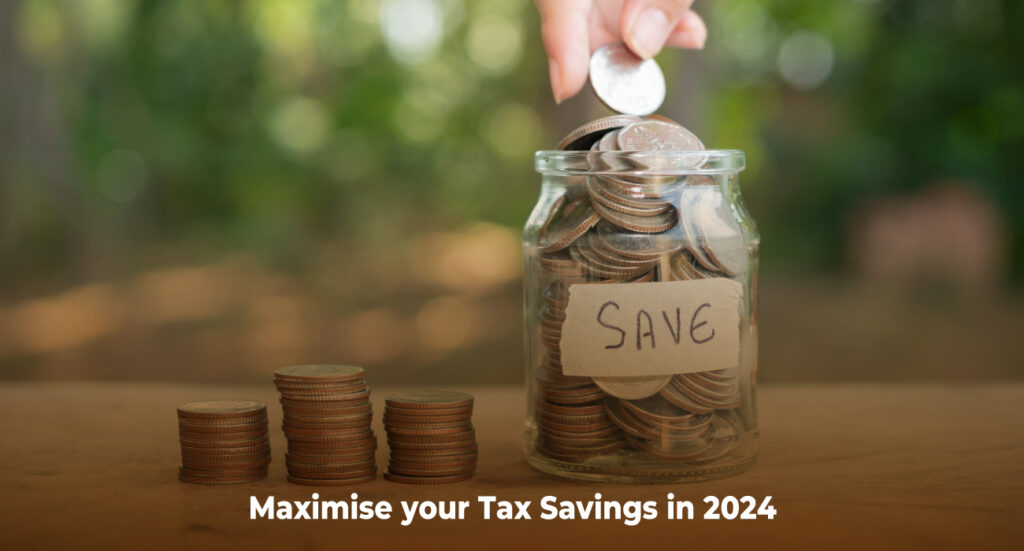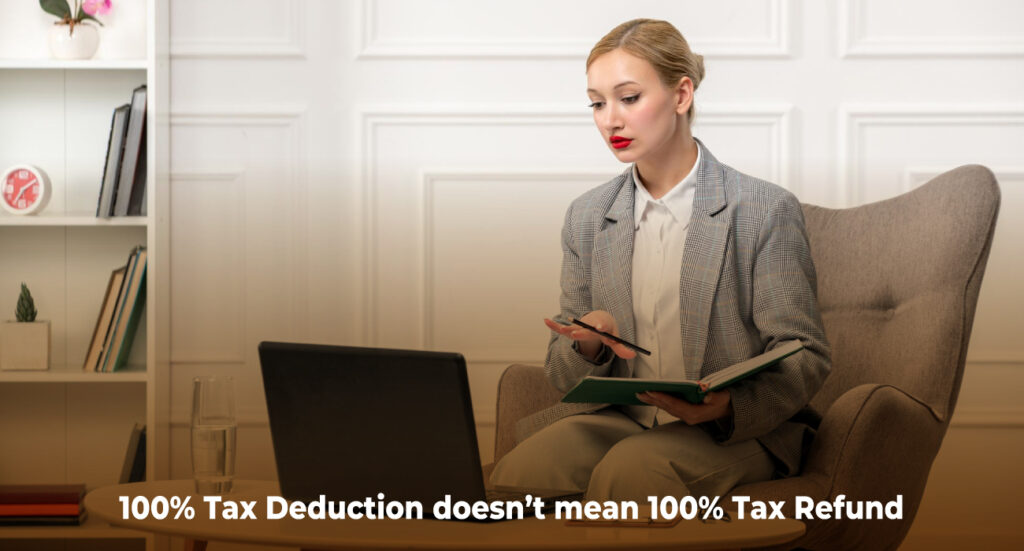Maximise your Tax Savings in 2024
Australians generally understand the importance of paying taxes, as it funds essential services like healthcare, education, and public safety. However, there’s a common sentiment of frustration when it comes to paying more tax than necessary, especially when there are legal ways to reduce one’s tax burden. With the end of the 2024 Financial Year (FY), many taxpayers are now focused on submitting their tax returns and exploring ways to minimize their tax liabilities.
At Investax Group, we understand the unique challenges faced by individuals and businesses during tax season. This is the time when everyone is keen to uncover every possible deduction and credit that can make a difference. Our goal is to arm you with the knowledge and strategies necessary to navigate the complex tax landscape effectively. Whether you’re an individual taxpayer, a property investor, or a small business owner, there are various opportunities to optimize your tax situation. From leveraging superannuation contributions to claiming work-related expenses, we’ll cover a range of tactics that can help you make the most of your tax return.

Know you tax Rates
There has been considerable discussion regarding the Stage Three tax cuts, with significant promotion from the government, leading to some confusion among taxpayers. Many clients have contacted us, inquiring if these tax savings will be reflected in their current tax return. It is important to clarify that the Stage Three tax cuts are not applicable for the 2024 Financial Year. Being informed about your tax rates is essential, as it enables you to understand how your tax liabilities are calculated accurately.
Australian resident individual income tax rates
| 2024 income year | From the 2025 income year | ||
| Tax rate | Thresholds | Tax rate | Thresholds |
| 0% | $0 – $18,200 | 0% | $0 – $18,200 |
| 19% | $18,201 – $45,000 | 16% | $18,201 – $45,000 |
| 32.5% | $45,001 – $120,000 | 30% | $45,001 – $135,000 |
| 37% | $120,001 – $180,000 | 37% | $135,001 – $190,000 |
| 45% | $180,001+ | 45% | $190,001+ |
100% Tax Deduction doesn’t mean 100% Tax Refund
In June, many taxpayers come across various tax tips and promotions, especially during the EOFY sales, where advertisements often claim “100% tax deduction” on items like laptops, phones, or tablets. Be cautious of these so-called tax hacks, as they can be misleading. Spending money under the impression that you will get it all back within a month is not accurate. A tax deduction reduces your taxable income, not the actual amount of tax you owe. A tax reduction or a tax credit reduces your actual tax.
My neighbour Sam and I recently had a conversation about gadgets. Sam is an IT contractor who loves his tech toys. “Mate, I spent $2,000 on a laptop on June 30th,” Sam said to me, beaming. “I’m so happy I got this laptop. I’ve been eyeing it for a year, waiting for a discount. I finally got the discount and will get the money back in July.”

Curious about what he meant by “getting all the money back,” I asked him, “What do you mean by ‘getting it all back’?”
He explained, “I paid about $40K in taxes this year, and since I spent $2,000 on a laptop that’s fully tax-deductible, I’ll get a $2,000 refund from the tax I paid.”
I had to clarify, “No, you won’t. A tax deduction doesn’t mean you’ll get a full refund of the purchase price. It means you’ll get a refund based on your marginal tax rate. In other words, if you’re paying a 45% income tax rate plus a 2% Medicare levy, you’ll receive a 47% refund on your tax deduction. So, for your $2,000 laptop expense, you’ll get back $940 from the tax office and your out of pocket expense is $1,060.”
Sam was astonished and said, “Why don’t you write something about this? It’s so confusing.”
Sam, this paragraph is dedicated to you, mate.
Know your Occupation Specific Deductions
When it comes to tax deductions, different occupations are allowed to claim different types of expenses. For example, a real estate agent may be able to claim expenses such as advertising, vehicle costs for property inspections, and marketing materials. In contrast, a medical practitioner might claim deductions for medical equipment, professional development courses, and medical journals. Similarly, a Special Forces army officer can claim different expenses compared to a police officer, such as specialized training, military equipment, and deployment-related expenses.
Understanding the specific deductions available for your occupation is crucial. The ATO provides detailed guides for various professions, outlining what can and cannot be claimed. These occupation-specific guides ensure that taxpayers maximize their eligible deductions while complying with tax laws. Whether you are in real estate, healthcare, law enforcement, or any other field, being aware of these specifics can significantly impact your tax return.
Feel free to explore our Occupation Guide library if you would like to know more about tax deductions specific to your profession. If you cannot find the guide for your specific occupation in our library, do not hesitate to reach out to us using this [link]. Consulting with a tax professional who understands the particularities of your profession can also be beneficial. They can provide tailored advice and ensure that you are claiming all eligible deductions, ultimately helping you to minimize your tax liabilities effectively.

Are you Claiming all your expenses?
Claiming tax deductions is a crucial part of minimizing your taxes. Whether you are an employee, property investor, or business owner, understanding the basics of work or business-related expenses can be very beneficial. Using a tax agent can certainly help, but it’s always good to be informed so you can discuss potential deductions with your agent.
Remember, anything and everything related to your income is generally supposed to be a tax deduction unless it falls under a different tax regime that disallows the claim. For example, travel from home to work and back is typically not an allowable tax deduction. Always clarify these types of expenses with your accountant to ensure you are making accurate claims.
Some of the common examples are
Self-Education, Training, and Related Travel Expenses: Expenses related to work-related education, training courses, and seminars can be claimed if they directly relate to your current job. This includes tuition fees, textbooks, stationery, and other costs associated with your studies. Additionally, you can claim travel expenses incurred to attend these courses, such as public transport fares, car expenses, and accommodation if you need to stay overnight. These deductions can help you manage the costs of furthering your education and improving your professional skills, provided they are directly connected to your current employment.
Home Office Expenses – If you work from home, you can claim a portion of your home office expenses using two methods. With the actual cost method, you can claim expenses such as electricity, internet, stationery, and phone costs. Alternatively, you can use the fixed-rate method, allowing you to claim 67 cents per hour worked at home. Regardless of the method chosen, you can claim the depreciation cost of dedicated office furniture for expenses over $300.
Gifts and Donations: You can claim deductions for gifts or donations made to organizations that are registered as Deductible Gift Recipients (DGRs). However, be cautious when donating to religious establishments such as churches, mosques, or temples. If these establishments do not have DGR status, your donation will not be tax-deductible. Always verify the DGR status of an organization before claiming a deduction for your donation.
Don’t forget to claim other work-related expenses such as tools and equipment, work-related travel, uniforms with logos, protective gear, personal super contribution, professional memberships and training, and tax agent fees. These deductions can significantly reduce your taxable income and ensure you maximize your tax return.

Importance of Keeping Good Records for Tax Purposes
Australia’s tax system relies on self-assessment, assuming the accuracy of the information you provide in your tax return. If your return is reviewed and you lack evidence to support your deduction claims, those claims can be disallowed. Keeping detailed and accurate records helps provide written evidence of income and expenses, facilitates tax return preparation, ensures you claim all entitlements, reduces audit risks, improves communication with the ATO, and avoids penalties. Well-maintained records reduce the cost of managing your tax affairs, as they save time for tax advisers, allowing them to focus on maximizing your entitlements.
For expenses used partly for private purposes, you must document how you determined the portion related to earning assessable income. Generally, you need to keep written evidence for five years from the date you lodge your tax return. There are exceptions: if you claim for the decline in value of depreciating assets, keep records for five years from your last claim; for capital gains tax (CGT) assets, keep records for five years after the possibility of a CGT event ends; and if you are in a dispute with the ATO, keep records for five years from lodging your return or until the dispute is resolved. By following these guidelines, you ensure compliance, optimize your tax return, and protect yourself from potential disputes and penalties.
In conclusion, maximizing your tax savings requires a thorough understanding of available deductions and careful planning. At Investax Group, we aim to empower you with the knowledge and strategies necessary to navigate the complexities of the tax system. By staying informed about tax rates, being cautious of misleading tax tips, understanding occupation-specific deductions, and keeping meticulous records, you can significantly reduce your tax liabilities and increase your returns.
Don’t miss out on any potential savings in this tax season. Whether you’re an individual taxpayer, property investor, or small business owner, our experienced tax specialists at Investax Group are here to assist you. Contact us today to ensure you maximise your tax benefits and optimise your financial health. Let our experts guide you through the process, providing personalised advice tailored to your unique situation.
General Advice Warning
The material on this page and on this website has been prepared for general information purposes only and not as specific advice to any particular person. Any advice contained on this page and on this website is General Advice and does not take into account any person’s particular investment objectives, financial situation and particular needs.
Before making an investment decision based on this advice you should consider, with or without the assistance of a securities adviser, whether it is appropriate to your particular investment needs, objectives and financial circumstances. In addition, the examples provided on this page and on this website are for illustrative purposes only.Although every effort has been made to verify the accuracy of the information contained on this page and on our website, Investax Group, its officers, representatives, employees and agents disclaim all liability [except for any liability which by law cannot be excluded), for any error, inaccuracy in, or omission from the information contained in this website or any loss or damage suffered by any person directly or indirectly through relying on this information.
Reference
ATO – Work related deductions





